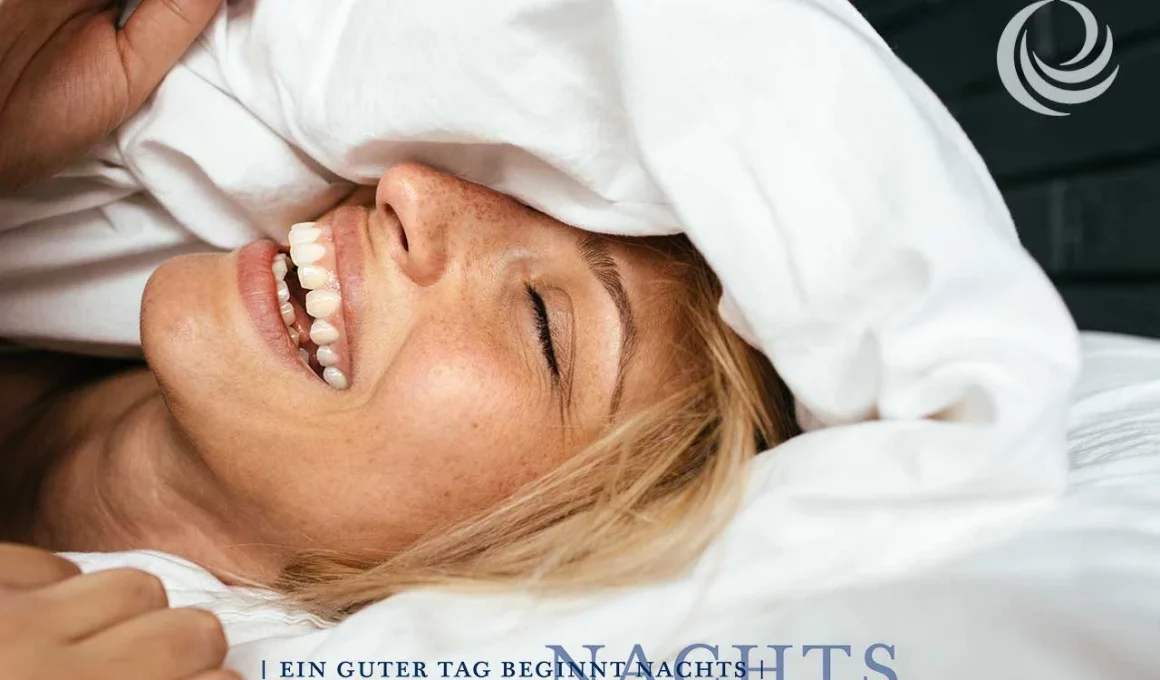Sleep is not a stand-by mode, but a process of regeneration of body and mind, revitalisation and information processing – true to our motto ‘A good day begins at night’.
Sleep fulfils several important functions:
- The organism and brain recover.
- The brain processes what it has experienced, learnt and practised during the day.
- The immune system is strengthened.
- The metabolism is supported.
Restful sleep has many positive properties:
SLEEP KEEPS YOU HEALTHY:
The immune system uses the night’s rest to arm itself against pathogens, fight inflammation and form new defence mechanisms. Sufficient sleep strengthens the immune system. Blood pressure is also lowered, causing the heart to beat more slowly and recover. It is not for nothing that they say: ‘Sleep is the best medicine’.
SLEEP MAKES YOU SMART:
During sleep, we process what we have experienced during the day. New information is transferred to the memory and memories are anchored. Information and motor processes are consolidated. The ability to learn and remember is supported.
SLEEP PUTS YOU IN A GOOD MOOD:
If you have a good night’s sleep, you wake up in a good mood. You are more communicative, more patient, more concentrated, more efficient, more resistant to stress – in other words, in a better mood.
SLEEP MAKES YOU BEAUTIFUL:
Growth hormones repair cell damage in the skin and tissue. New skin cells are created. The term beauty sleep is therefore quite correct.
SLEEP MAKES YOU STRONG:
Growth hormones strengthen bones, increase performance and repair tiny muscle injuries.
SLEEP MAKES US GROW:
The body releases more growth hormones. They ensure that cells renew themselves and that children grow. This is why babies and toddlers need a lot of sleep.
SLEEP MAKES YOU SLIM:
A regular rhythm of sleeping and waking times supports the metabolism. It is controlled by various hormones and enzymes. These include digestive enzymes, which help to break down the food components fat, starch and sugar. Depending on the biological clock, many or only a few of the enzymes are found in the stomach and intestines. The messenger substances that regulate hunger and satiety also obey the body’s internal clock. If you get enough sleep, you produce enough leptin: this is the messenger substance that curbs your appetite.
Everyone should pay attention to their sleep pressure and biorhythm when sleeping!
Sleep pressure and biorhythm – these are the two conductors of sleep. They regulate the sleep-wake cycle and are particularly important for a good night’s sleep. Sleep pressure can be explained using the image of an hourglass. The length of the state of wakefulness is comparable to the sand that trickles from top to bottom in the clock. The longer you are awake, the more sand accumulates in the lower chamber. The fuller the chamber becomes, the higher the sleep pressure and we become tired. If you turn the hourglass round again – in the form of a restful night’s sleep – a new phase of sleep pressure begins.
Our biorhythm influences whether we are wide awake at certain times of the day and sleepy at others. This rhythm relates to a period of one day. Timers for this ‘internal clock’ with a 24-hour cycle are factors such as daylight. So-called social zeitgebers are also part of it – i.e. periodic social events that synchronise our biorhythm. These include, in particular, everyday working life and family life. Our body determines the biorhythm through body temperature and the concentrations of growth and stress hormones. As these cycles always run in the same way, we should avoid influencing them.
FACTS: If you sleep less than six hours, you are living an unhealthy life!
The less you sleep, the higher the risk of becoming ill or overweight more quickly. However, sleeping too much does not automatically make you healthier. Statistics show that even extreme late sleepers die earlier than normal sleepers.
CONCLUSION: Restful sleep loves habits and rhythms.
This allows the body and mind to better adjust to the rest phases. Party nights, jet lag and shift work, on the other hand, throw the conductors of sleep out of kilter.














